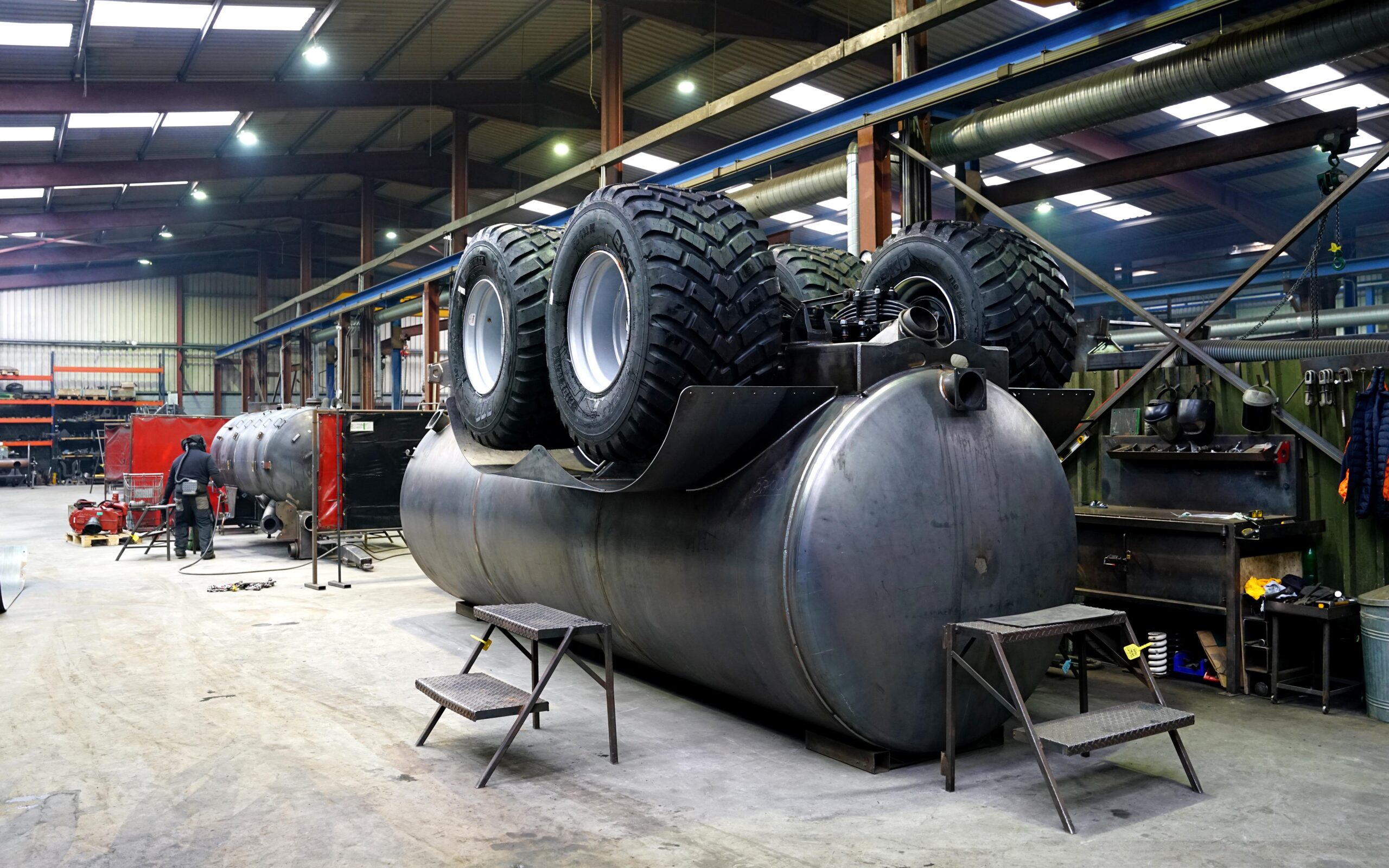It was back in the 1980s that Enda O’Connor of Tubber, Co Clare, took to repairing and manufacturing farm equipment, and in doing so he founded Conor Engineering.
40 years later, the company has grown to employ around 40 staff on its 3ac site in the same village and is busy exporting its products all over the world.
Fields of expertise
Most notably of late, the firm despatched a pair of 6,600 gallon slurry tankers to New Zealand which, Barry Connor believes, may well have been the biggest ever made in Ireland.

Barry is Enda’s son, taking over the reins when his father retired from the company.
However, Barry chose to study business at college, rather than engineering, for he was bought up amongst welding and machine tools, and if a business is to grow, then it will require this additional skillset.
The company’s early success was built up on a staple of grass toppers, bale wrappers and sheer grabs, products which require a large production run to be viable, which was possible for many years.

Today, however, there is a multitude of companies offering these products, so Conor Engineering has moved onwards and upwards to slurry tankers, muck spreaders and diet feeders.
These are the major items, but the smaller products are not completely forgotten and so slurry agitators, bale wrappers and dribble bars still feature on the price list.
Slurry boom good for business
It is though, slurry tankers which have been the major success over the past few years, due in part to the Targeted Agricultural Modernisation Scheme (TAMS) grant which has seen farmers re-equip, while other dairies have expanded or been established.
Presently, the factory is running at full capacity filling current orders, and while there is still a six-month lead time, it has fallen back from one year, which is where it stood at the height of the component shortage.

Thankfully, this issue has begun to resolve itself with such items as tyres now being more readily available, and steel has fallen back in price as well, leading to an easing of delivery times.
Certain components, especially hydraulics, are still taking a long time to come through. Conor Engineering buys in all its valve chests already assembled and, so far, its supplier has managed to fulfil orders by drawing on its own stock.

Unfortunately, prices have stayed resolutely at a higher than desirable level thanks to the massive increase in energy costs. All that electricity for the welders has to be bought from somewhere, and it isn’t cheap.
Keeping the ship going
This, and the shortage of skilled labour are the two biggest issues that Barry faces at the moment in keeping pace with the workload.
Welders just can’t be found in Ireland at the moment, so, like other businesses, Conor Engineering may have to look abroad to find the right people.

New and larger dairies have also powered an interest in diet feeders and these are proving to be strong sellers, although Barry notes that the German-sourced serrated blades have spiralled in price, much in the manner of the augers to which they are fitted.
Bale wrappers are not yet extinct either. Although combination balers are now commonplace, they don’t always suit soft or hilly ground, and they are expensive, so a separate baler and wrapper can still be economical if the operators are available to work them.
Conor Engineering abroad
The export of machinery is an important part of the company’s income; its two major markets are France and Norway.

Norway tends to buy lots of smaller tankers to suit the farm size in the country, and they usually go well equipped despite their diminutive size, for Norway is not a poor country.
South America is growing in importance and now with a new dealer coming on board in New Zealand, it is hoped that the antipodes will prove to be fertile sales ground.
Understated confidence
One component that Conor Engineering is free from worrying about is microchips, yet Barry can see that changing, and there will be the need to get on board with ISOBUS along with in Near Infra Red (NRI) sensing for slurry analysis.

With full order books and component prices and availability stabilising, Barry has few worries about the immediate future and the ability of the company to deal with whatever happens in agriculture.
Farm incomes are remaining buoyant although he has seen some hesitation in spending. Barry is another who hesitates in predicting the level of business this year, but he is certainly not despondent about it.

